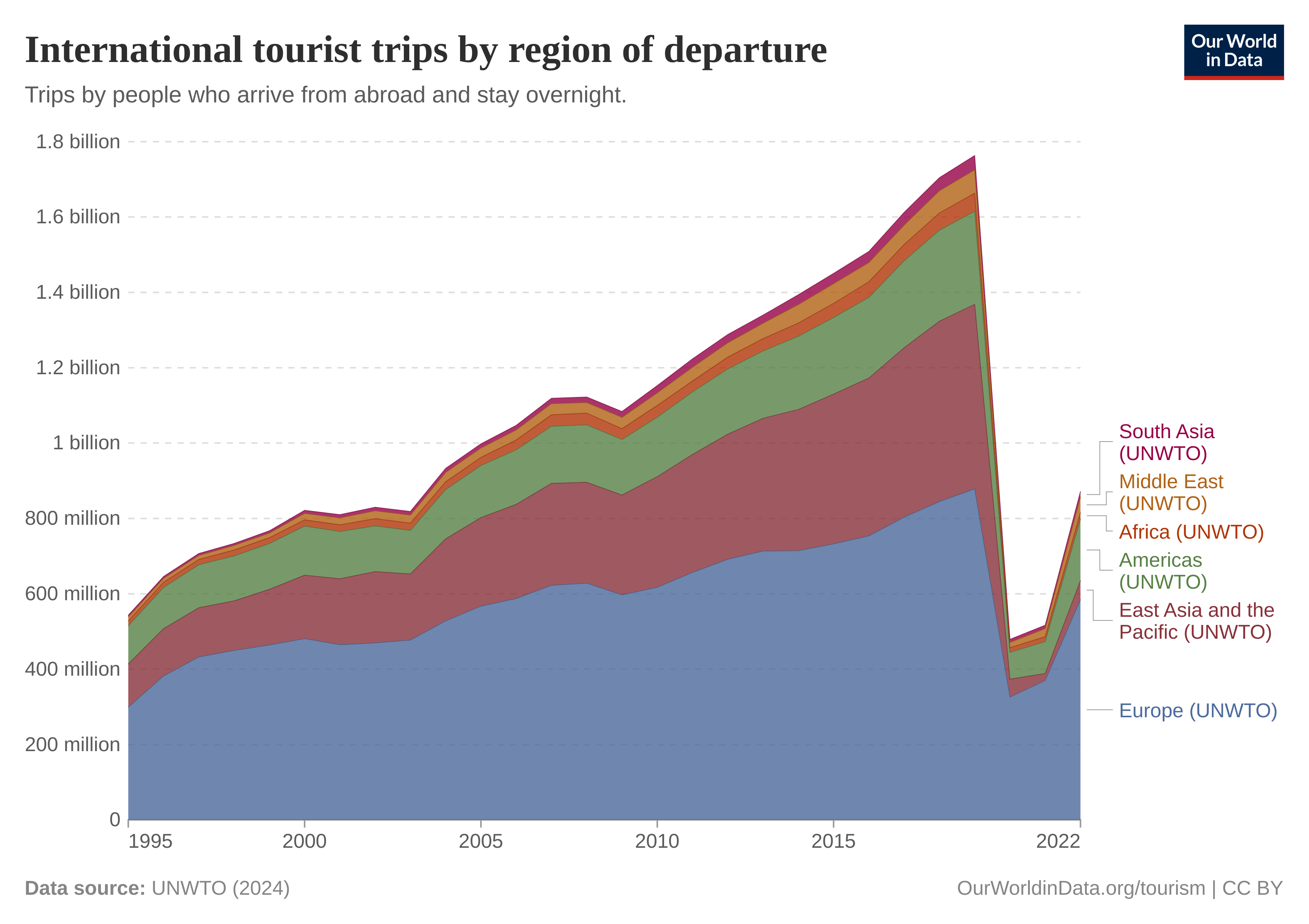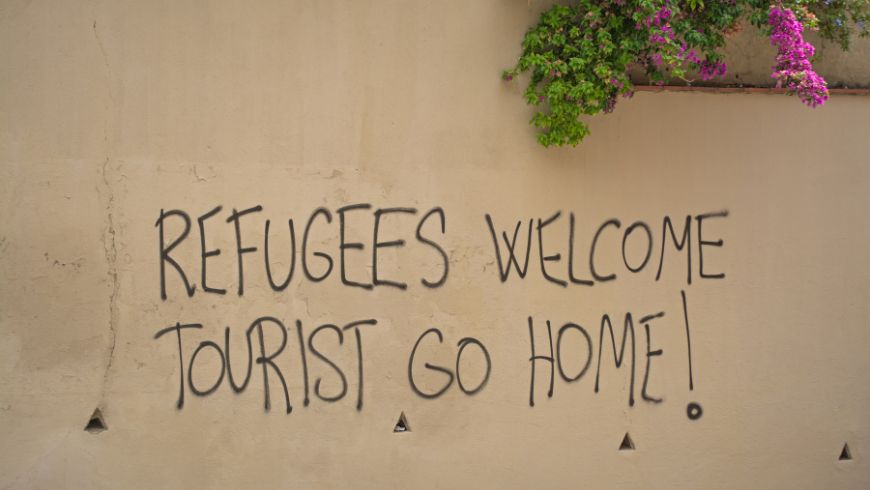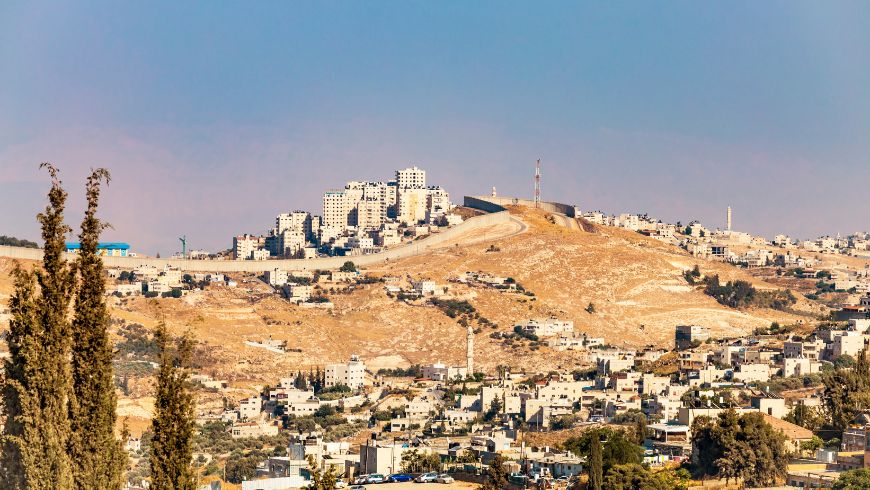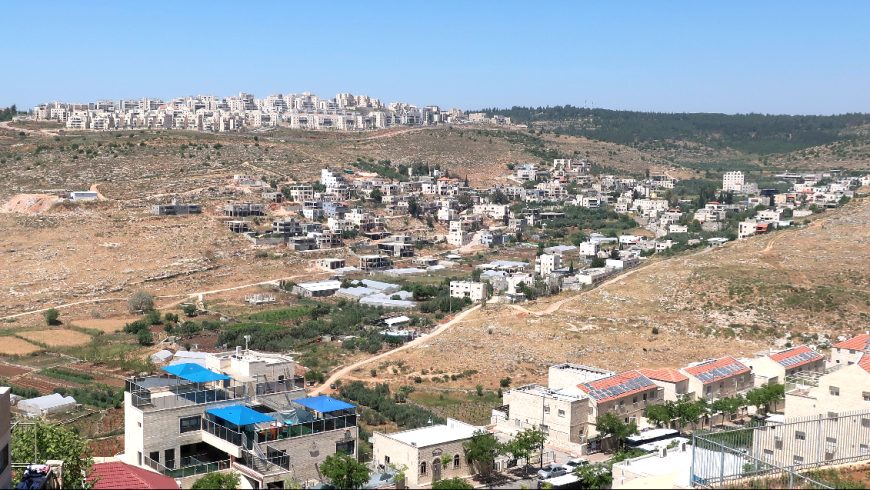Today, everything is increasingly interconnected: our daily choices have effects that ripple across the world. Even booking a vacation can have significant consequences. By using platforms that offer accommodations in illegally occupied territories, such as the West Bank or East Jerusalem, we may end up indirectly supporting war and the occupation of Palestine. Would you ever have imagined that?
If the answer is no, it’s time to rethink your bookings and consider more ethical and responsible alternatives to the tourism giants.
Global Tourism on the Rise: At What Cost?
Global tourism is a continuously expanding sector: in 2024, there were 1.4 billion trips recorded, generating $1.9 trillion in revenue (UNWTO data). Some regions, such as North Africa and Central America, experienced record growth compared to pre-pandemic levels. But behind this economic boom lies a human and social cost that many destinations are forced to pay.
The question we must ask ourselves is simple: are our vacations fueling injustice—or helping to build a fairer world?

Airbnb: From the Sharing Economy to Business in Settlements
According to studies by Wachsmuth and Weisler (2018), the shift from long-term to short-term rentals caused by Airbnb has led to higher housing prices and concentrated profits in the hands of a few multi-hosts. This has encouraged overtourism and the abandonment of historic city centers by residents.

To these economic problems, an even more controversial issue is added: the presence of listings in areas under military occupation or illegal control. A Guardian investigation (February 2025) found 321 Airbnb listings in Israeli settlements in the West Bank and East Jerusalem. These properties stand on land confiscated from Palestinians and are accessible almost exclusively to Israeli settlers or foreign tourists.
Despite promises to remove such listings in 2018 and to donate profits to international NGOs starting in 2019, Airbnb continues to list properties in settlements—normalizing a context that organizations like Amnesty International and Human Rights Watch openly describe as apartheid and discriminatory.

Booking.com: Dirty Profits and Money Laundering
Booking.com has also come under fire. According to the independent research center SOMO, the Dutch booking giant continues to advertise accommodations in illegal Israeli settlements in the West Bank and East Jerusalem—territories taken from Palestinians in violation of international law. SOMO highlights how the platform profits from these bookings, which, once funneled into the Dutch financial system, could amount to actual money laundering.
Despite being included on the UN Human Rights Council’s “blacklist” and facing multiple NGO complaints, Booking has not stopped its operations in the settlements, arguing that removing listings would only be possible if prohibited by national law.
Investigations cited by SOMO have recorded a steady increase in listings: from 51 units between 2021 and 2022 to 70 in 2023, 57 of which are in the West Bank. The estimated illicit profits exceed one million euros—indirectly financing a system of segregation and discrimination that many international organizations have denounced as apartheid.
Among the most symbolic cases is Wadi Foukin, a Palestinian village surrounded by settlements, where the publication of listings on Booking.com contributes to the expansion of colonies and the segregation of local residents, who are being dispossessed of their land and livelihoods.

Ethical Tourism: Choosing How to Book Makes a Difference
Not only Airbnb and Booking.com: other portals like Expedia and Tripadvisor have also been flagged by human rights organizations for listing accommodations in settlements built in violation of international law.
“Tourism cannot be called ethical when it is practiced at the expense of Palestinians, for the benefit of illegal colonies where settler violence goes unpunished and resources are systematically stolen,” reminded the BDS Italy movement in L’Indipendente.
Alternatives do exist: platforms dedicated to ethical and sustainable tourism that respect human rights, empower local communities, and offer environmentally conscious experiences.
So, How Can You Travel Ethically?

- Avoid platforms that advertise accommodations in contested territories and boycott companies complicit in genocide.
- Support ethical and sustainable alternatives that promote local communities and human rights.
- Choose accommodations that commit to transparent, fair, and respectful practices.
- Join collective initiatives, which invites all spaces to declare themselves free from all forms of discrimination.
Tourism as Responsibility: A Choice for Peace, Justice, and Solidarity

Every journey is also a political choice. Every booking, every accommodation selected can either reinforce injustice—or help build a fairer future.
To travel responsibly and ethically means:
- respecting international law,
- supporting local communities,
- promoting peace and human rights.
In a world where everything is connected, even a vacation can become an act of justice, solidarity, and freedom.
Cover image: photo via Canva PRO




